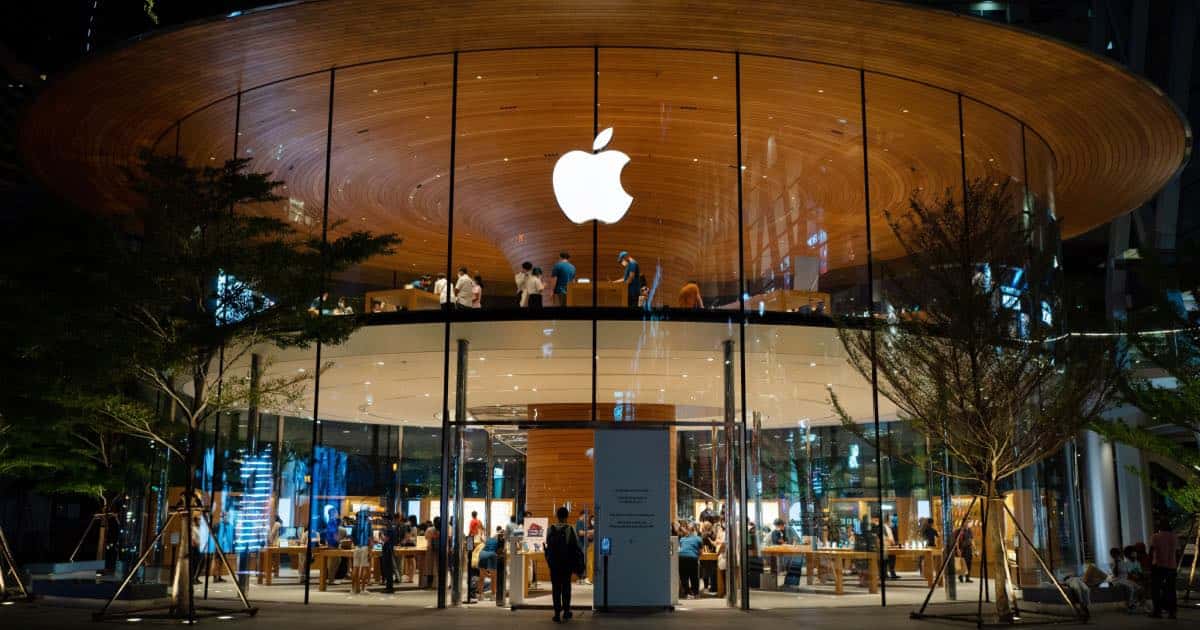The Trump administration’s threat of big new tariffs has caused Apple Inc.’s share price to drop sharply, but it has also brought a short-term boost in retail activity. Customers concerned about probable price increases rushed to Apple stores over the weekend to buy iPhones, employees at various locations across the U.S. said. Many shoppers expressed worry that prices could rise dramatically after the tariffs are imposed.
Apple’s iPhones, which are mostly manufactured in China, are at risk of being hit with a 54% tariff. One employee described the scene as “slammed with people panic-buying phones,” adding that almost every customer asked whether prices would go up soon. Although the stores did not see the same lines as during an iPhone launch, employees compared the atmosphere to the busy holiday season. Some noted that Apple had not given guidance on how to address customer questions about tariffs.
The increased foot traffic led to higher sales in some major markets over the weekend compared to previous years. A person familiar with the matter said Apple’s U.S. retail stores saw a boost in purchases during what is typically considered an off-peak season for iPhone sales. An Apple spokesperson declined to comment on the situation.
Apple’s stock has been hit hard by market reactions to the tariff news, losing more than half a trillion dollars in valuation over two trading days and experiencing its worst three-day decline since 2001. The company has been preparing for the probable tariffs by stocking up on inventory and adjusting its production strategy. Apple is now adding more devices made in India to its U.S. supply chain since Indian goods are taxed at a lower rate than Chinese imports. The company has also been increasing production in Vietnam, where it makes products such as Apple Watches, Macs, AirPods, and iPads.
At Apple’s flagship Fifth Avenue store in New York, customers were busy shopping on Monday afternoon. One visitor from Buenos Aires said she decided to buy an iPhone 15 for her sister sooner rather than later after hearing about possible price hikes due to tariffs. She added that many people seemed motivated by fear of future price increases.
Analysts have speculated that a 54% tariff on Chinese-made products could mean iPhones costing thousands of dollars each. However, reports say Apple is likely to take steps such as negotiating with suppliers and accepting lower profit margins to avoid sharp price hikes. The company’s latest flagship iPhone starts at $999, a price point it has maintained since 2017.
The retail surge could help boost Apple’s third-quarter results, which run through June, as the company sells off inventory it had already accumulated. However, the impact of tariffs may not be fully felt until later quarters. Apple is set to report its fiscal second-quarter earnings on May 1, when CEO Tim Cook and CFO Kevan Parekh are expected to discuss how they plan to navigate these challenges.
More here.
